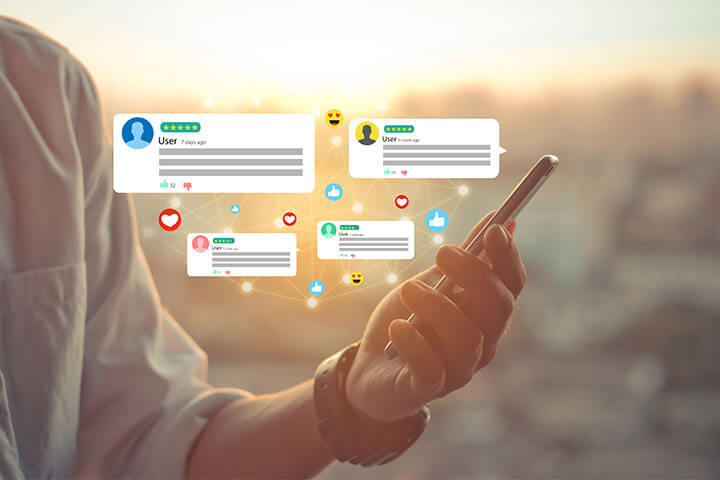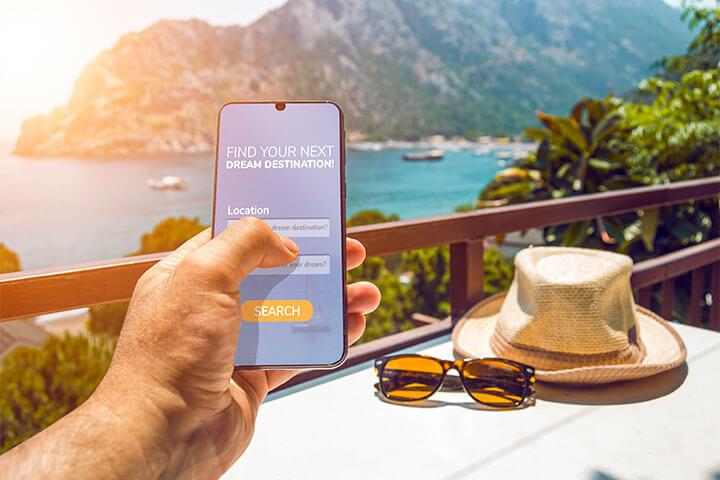For years, the hospitality industry has relied on third-party cookies. Hotels used this data to increase guest satisfaction, target advertisements, and maintain profitability. But with the end of third-party cookies in the United States, establishments will need to find a new path forward. This article presents five ways to collect data without the use of third-party cookies, while gaining valuable consumer insight.
What Are Third-Party Cookies?

Due to growing concerns for user privacy, the use of third-party cookies is ending in the United States. Third-party cookies are small files set by a website other than the one a user is currently visiting. For example, if you visit a website that has a Facebook “Like” button, Facebook will set a third-party cookie on your computer. This cookie can then be used by Facebook to track your browsing activity across multiple websites.
The hospitality industry uses third-party cookies for advertising purposes, market research, and to help create a more personalized travel experience for their guests.
The Future of Customer Data Collection

Customer data in the hospitality industry has never been as important as it is today. One reason is that guests are increasingly seeking personalized experiences. The modern traveler wants to feel like they are being treated as an individual, not a number. Naturally, collecting personal data can help hotels to meet these expectations and create a more memorable experience for their guests.
Because hotels will no longer be able to track their guests’ browsing activity across multiple websites, we’ve listed several ways to effectively collect data without the use of third-party cookies.
1. First-Party Cookies
One way that the hospitality industry can continue to collect customer data is through first-party cookies. First-party cookies are created by the website that you are currently visiting. They are only used to track your browsing activity on that specific website.
Hotels collect first-party cookies to track their customers’ behavior on their website, such as the pages they visit and the products they view. Additionally, when customers visit a hotel website, first-party cookies also gather basic information such as their name, email address, and travel preferences.
To leverage this method even further, add more informational and special interest pages to your hotel’s website to offset the lack of third-party cookies. Informational and special interest pages will help you gain novel insights into customer preferences and interests, enabling your brand to build a more personalized guest experience. Depending on your target demographic, interactive features such as quizzes may help boost customer engagement.
Contextual Targeting Using First-Party Cookies
Special interest and informational pages are a great way to use first-party cookies for contextual targeting, a type of advertising that delivers ads based on the content that a user is viewing. For example, if someone is reading a new special interest page or blog article you’ve added to your hotel’s website about restaurants in Paris, you can target advertising, offers, and emails to that user for your hotel in Paris.
Contextual targeting can be a more effective way to reach customers than traditional advertising. This is because it is more relevant to the interests of your guests.
2. Consumer & Guest Surveys
Another way that hotels can collect customer data is through customer surveys. Customer surveys can be used to collect information about customers’ preferences, such as their favorite type of hotel, their preferred location, their budget, and any other features important to them. This information can be used to personalize the customer experience and to target customers with advertising.
For example, hotels can use customer surveys to collect data about customer preferences. Then, use this data to improve the customer experience, such as by providing better amenities and services.
3. Customer Relationships

The end of third-party cookies will also make it more important for hotels to focus on customer relationships. Hotels can build customer relationships by providing excellent customer service, offering loyalty programs, and sending personalized marketing messages. By focusing on customer relationships, hotels can ensure that they continue to attract and retain customers even after the end of third-party cookies.
For example, when guests book a room, hotels can collect a variety of personal data, such as their name, email address, phone number, and travel dates. This data can be used to personalize the guest experience, such as sending them a personalized welcome email with information about the hotel and its amenities.
Another way hotels can strengthen their customer relationships is by listening to their guests. Ask guests for feedback on their stay, either during their stay or after they have checked out. This feedback can be used to improve the guest experience and identify areas where the hotel can improve.
4. Loyalty Programs
Many hotels offer loyalty programs that reward guests for staying at the hotel. To participate in these programs, guests must provide the hotel with their personal information, such as their names, addresses, and email addresses. This data can then be used to track guests’ travel habits and to target them with advertising.
You may also want to include further questions on personal interests and favorite amenities. Adding a customer survey(s) that will earn them points towards their loyalty program is another surefire way to gather personal information, preferences, and interests.
5. Social Media
Finally, hotels can also collect customer data through social media. Social media platforms can provide hotels with information about their customers’ interests and activities. This information can then be used to personalize marketing messages and create content that is relevant to their customers.
Symbiotically, hotels can also use social media to share news and updates about the hotel, issue surveys, and ask for feedback from guests and potential new customers.
Customer Relationship Management

Organizing all of your information is a challenge made easier by investing in Customer Relationship Management (CRM) software. CRM software provides a centralized location for tracking guest interactions, preferences, and history. Having this information available in a singular, organized, and easy-to-use location allows you to improve the guest experience while increasing customer loyalty.
Data Management in the Hospitality Sector
The end of third-party cookies is a challenge for the hospitality industry, but it is also an opportunity. By adapting to this change, the hospitality industry can collect customer data in a more privacy-friendly way. Additionally, they can personalize their marketing efforts more effectively.
There has never been a better time or reason to reconnect with your customers in a more personal way. Customers will feel more valued, and you can collect invaluable data you may not have considered collecting before. Is your hospitality business prepared for the end of third-party cookies? Let us know in the comments!



